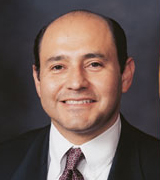Yet another attempt to impose new regulations on the medical marijuana industry in California has fallen apart.
 Legislation to regulate the chaotic MMJ market died in Senate committee before the end of the legislative session in August. The defeat followed the failure to pass another medical marijuana reform bill in the Assembly. Similar attempts have died in each of the past three years.
Legislation to regulate the chaotic MMJ market died in Senate committee before the end of the legislative session in August. The defeat followed the failure to pass another medical marijuana reform bill in the Assembly. Similar attempts have died in each of the past three years.
The legislation authored by state Sen. Lou Correa, Democrat of Santa Ana, never made it out of its final committee before the Legislature closed the current session Aug. 14.
The bill’s whimpering end comes as a blow to law enforcement and municipal groups that wanted to force stringent regulations on MMJ dispensaries, doctors, and patients. But marijuana proponents celebrated the legislation’s defeat.
Correa’s plan would have put regulation of the industry in the hands of a new Bureau of Medical Marijuana Enforcement. Originally, he wanted local governments to write their own rules, but other senators rejected that approach.
Correa also abandoned a proposal to impose tight new rules on physicians who recommend weed to patients. Municipal and police lobbying groups strongly advocated for those requirements, which could have put many doctors at risk of federal prosecution.
Police groups continued to back the legislation, but only because it was stricter than a competing proposal in the Assembly. That bill, filed by Assemblyman Tom Ammiano, was killed earlier this year.
Marijuana proponents said Correa’s rules were confusing and too restrictive. It would have become much harder for patients to obtain medicine, for physicians to help them, or for legitimate medical marijuana providers to do business.
“We were hopeful that reasonable regulations to protect patients, farmers and dispensaries, as well as public safety, could be achieved in California this year,” said Dale Gieringer, director of California’s branch of NORML. “However, although a lot of progress was made, it was impossible to do so in the time that we had.”
Correa’s bill was intentionally packed with provisions that would have made life impossible for patients, providers, and others involved in the industry.
Under the legislation, the Bureau of Medical Marijuana Enforcement would serve a roll similar to the California Department of Alcoholic Beverage Control. The agency would collect an annual $8,000 license fee from anyone growing weed destined for more than five patients.
 And marijuana businesses would be subject to local restrictions, including outright bans. More than 200 municipalities in California have the bans, and Correa’s rules could make it harder to remove them when recreational weed becomes legal – probably in 2016.
And marijuana businesses would be subject to local restrictions, including outright bans. More than 200 municipalities in California have the bans, and Correa’s rules could make it harder to remove them when recreational weed becomes legal – probably in 2016.
Also, the state would bar anyone with a conviction for drug trafficking from growing or selling weed. That would eliminate many of the most knowledgeable and skilled providers from the market.
Ammiano said these provisions were “poison pills” that made the legislation untenable. Some of these requirement were tacked on while the bill passed through various Senate committees, and Ammiano, who put his backing behind Correa after his own bill failed, ultimately withdrew his support.
“I look forward to when California can enter the 21st century on marijuana policy,” he said.
 California Marijuana Market Breaking "Marijuana News" from CA
California Marijuana Market Breaking "Marijuana News" from CA

